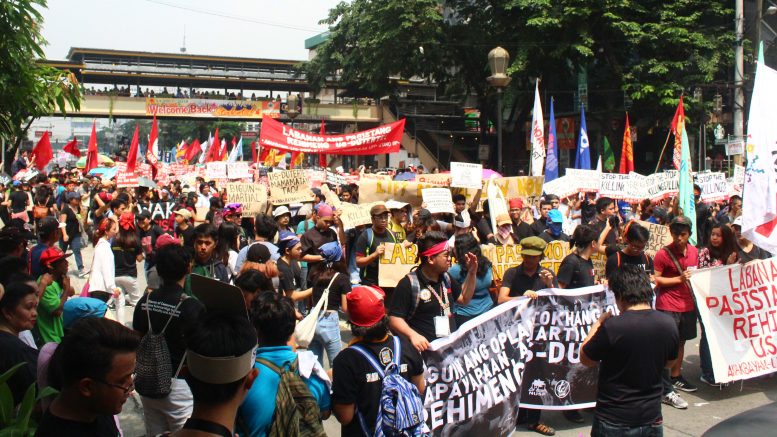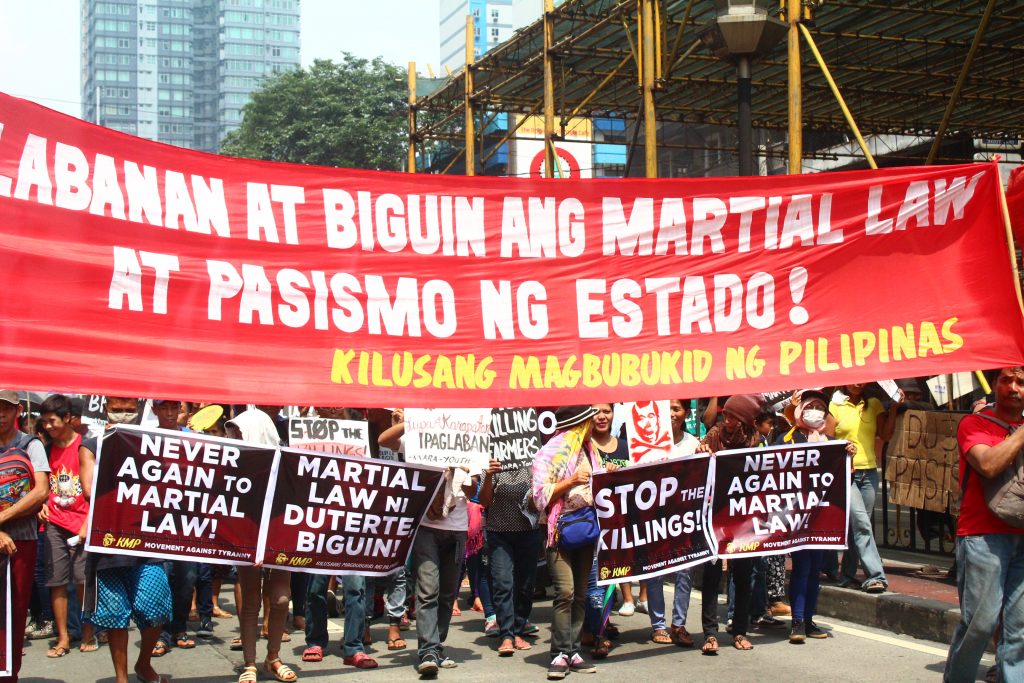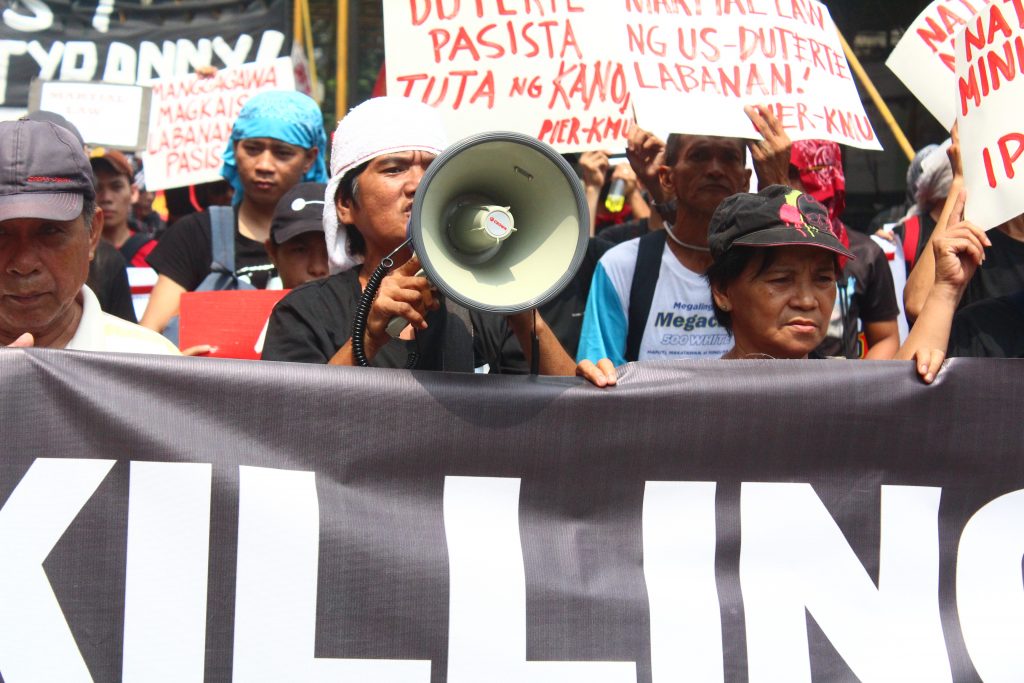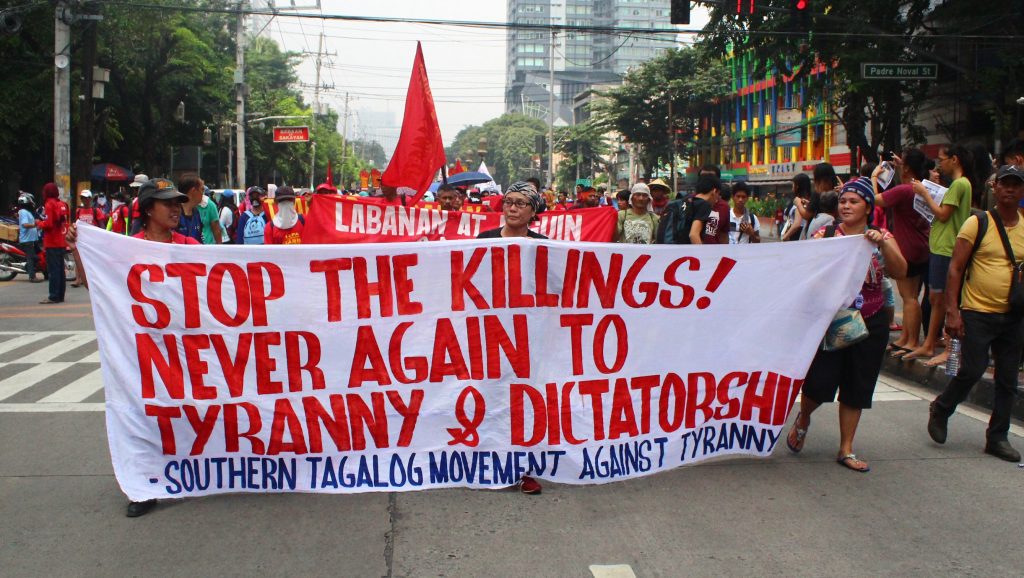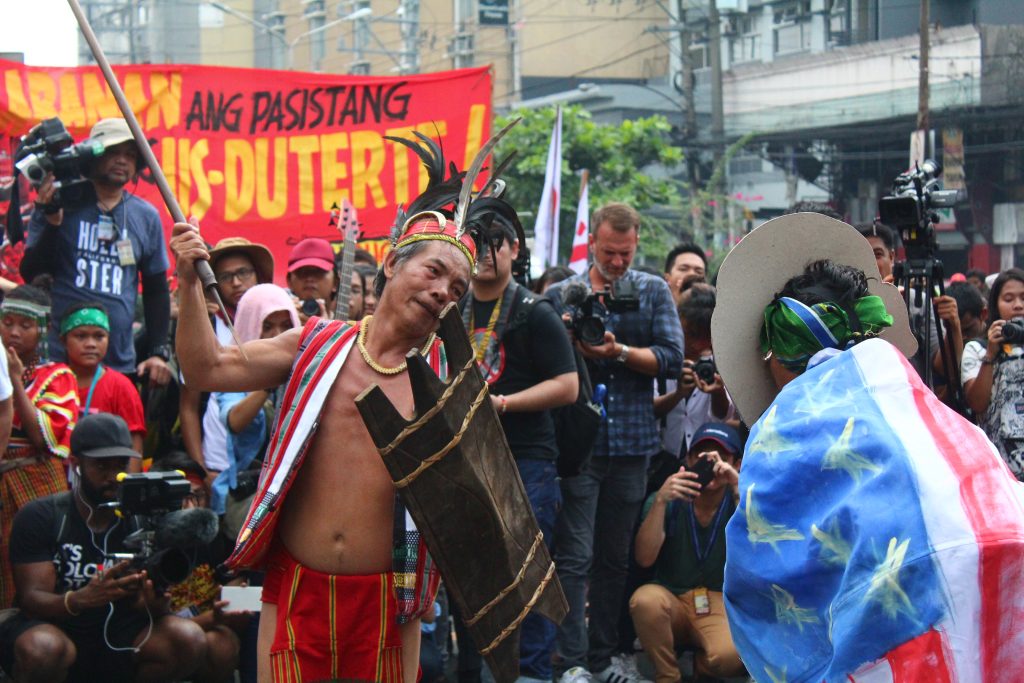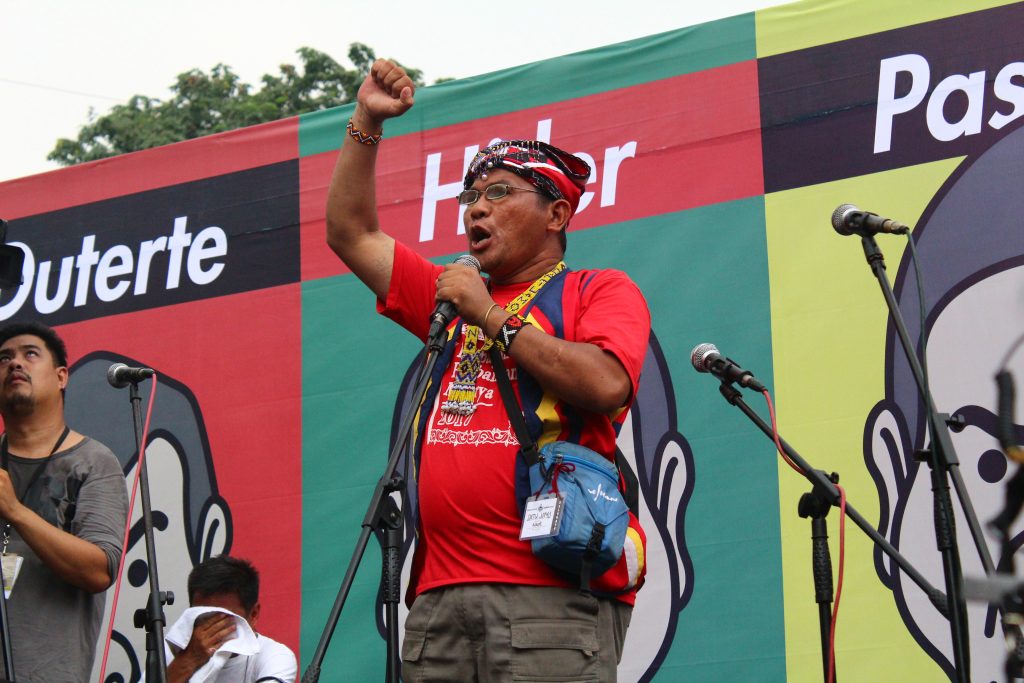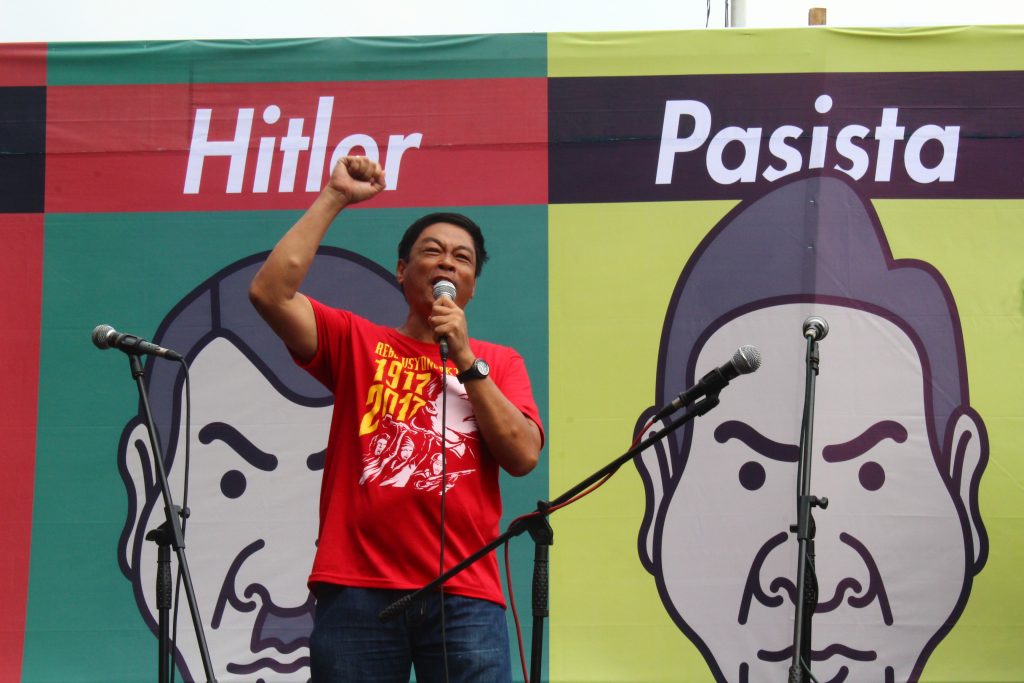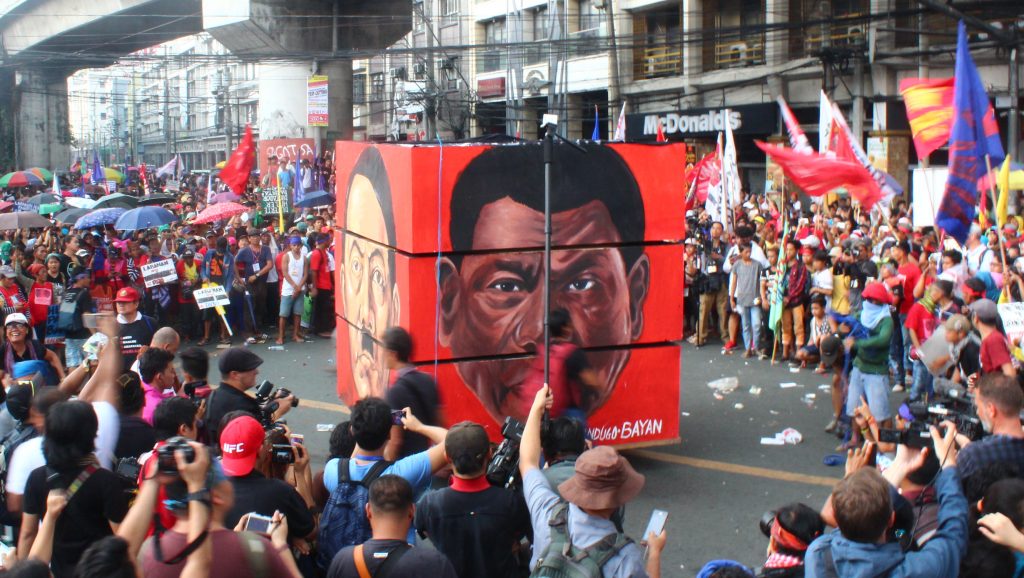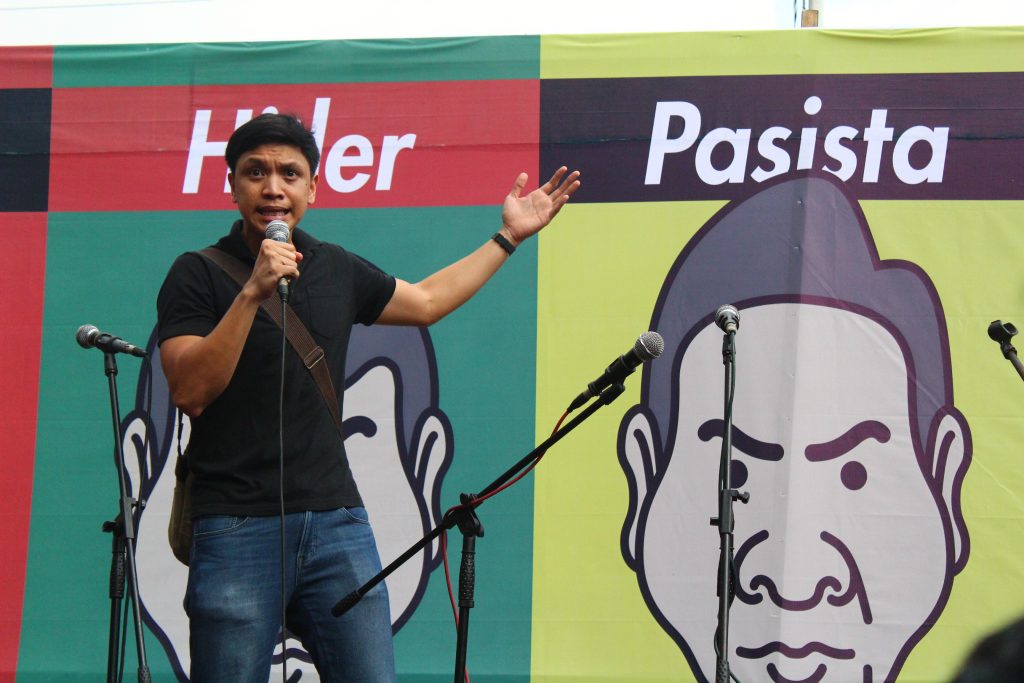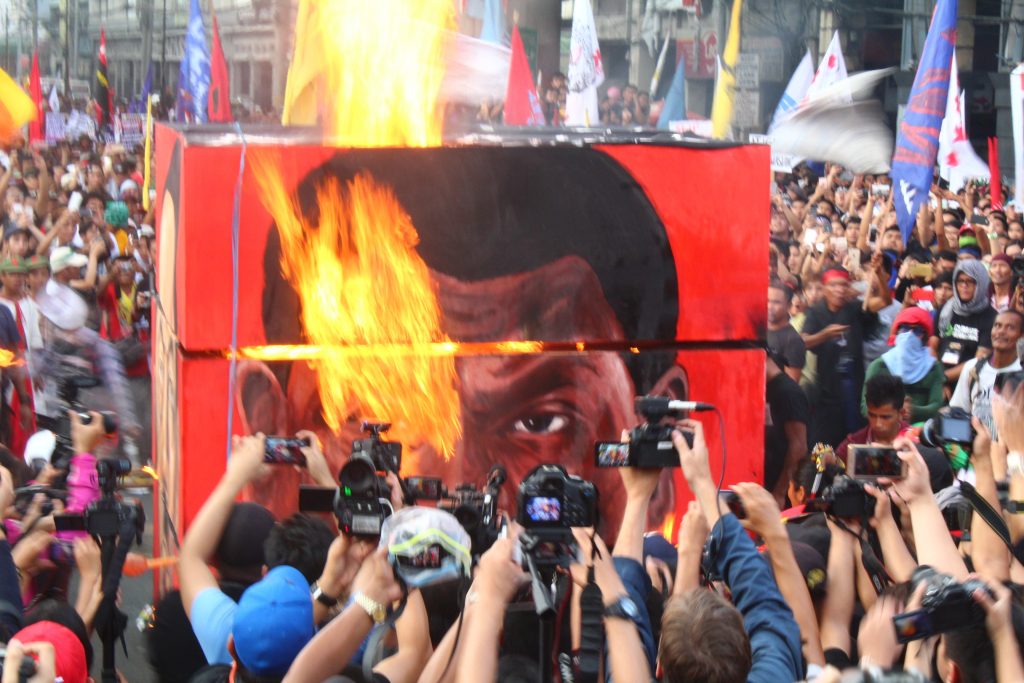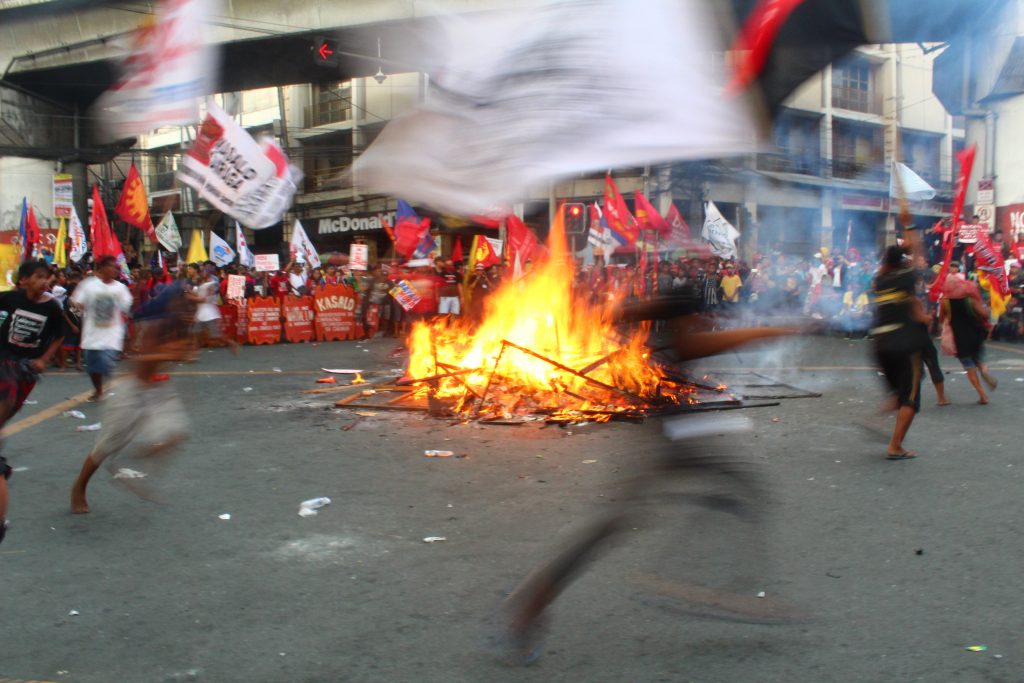MANILA—Thousands of protesters gather on September 21 anti-tyranny protest in Luneta to commemorate the 1972 Martial Law declaration.
An estimated 30,000-strong protesters led by the Movement Against Tyranny marked the 45th year of martial law declaration by dictator Ferdinand Marcos (Proclamation 1081) and condemned President Rodrigo Duterte’s authoritarian regime, killings in the name of war on drugs, and failed campaign promises.
“Never again, never again to martial law!”
Prior to the national day of protest, President Duterte declared martial law in Mindanao on May 23, 2017 after members of Maute terror group attacked Marawi City, Lanao del Sur. Duterte and his allies hinted that the government might declare nationwide martial law if the demonstrations will get out of control. The threat and downpour of rain did not stop the activists, youth, artists, workers, farmers, indigenous peoples and many others to denounce the intensifying militarization in Mindanao and the increasing number of human rights violations under Duterte’s presidency.
A known ally of the Marcoses, President Duterte granted the “hero’s burial” wish of the family and allowed the private burial of the dictator’s remains at the Libingan ng mga Bayani last year. The sneaky move garnered the President and the Malacañang criticisms from the people.
Stop lumad killings and imperialist plunder in Mindanao
Duterte is the first Philippine president to hail from Mindanao, a home to millions of national minorities, including the lumad peoples, the largest indigenous group (18% of Philippine population). Yet, they are one of the poorest, most neglected members of the society.
Intense military and para-military operations such as areal bombings, destruction and burning down of schools, torture and extrajudicial killings of community leaders have displaced Lumad communities. Non-stop violations on their human rights have facilitated large-scale mining and foreign corporations to encroach without interference thousands of hectares of ancestral lands.
Much of the mineral resources of Mindanao are extracted by giant mining companies and exported out of the country. Data from Mines and Geosciences Bureau showed that the country has exported almost US$ 4.01 Billion worth of minerals and mineral products to China, Japan, and Australia among many other countries in 2014. Very minimal goes back to the local economy as the minerals are shipped out leaving hardly any downstream production and local employment.
Human rights group Karapatan documented 420,046 victims of forced evacuation, 891 victims of illegal arrest, and 357, 754 victims of aerial bombings from Duterte’s counterinsurgency program Oplan Kapayapaan. Meanwhile, there is now more than 13,000 deaths documented in Duterte’s ‘war on drugs,’ mostly urban poor and informal workers.
Failing to uphold and defend the workers’ rights
Labor groups led by Kilusang Mayo Uno condemned President Duterte’s failed promises to the workers his US-backed authoritarian rule that perpetuates worsening labor conditions in the country. The president’s refusal to implement genuine land reform and national industrialization exposes his anti-worker policies. The signing of DOLE Department Order 174 for one, legitimizes contractualization and is very far from the workers’ demand to repeal all department orders and policies that allow labor contractualization in the country.
The widespread flexible types of employment have directly affected the workers’ wages, the right to freedom of association, and the unionization rate in the country. Data from independent think tank IBON Foundation show two out of three employed Filipino workers (24.4 million) are non-regular or engaged in precarious jobs while unemployment increased to 4.6 million. In the last three decades, the unionization rate in our country has dramatically declined to only 8.7% of salaried workers (1.95 million) with only 207,811 workers covered by Collective Bargaining Agreement or CBA according to Center for Trade Union and Human Rights. These factors have intensified economic inequality and poverty, with seven out of 10 Filipinos rating themselves poor.
About 46.1% of Filipino workers (31 million) have not been receiving the minimum wage (PSA, 2016). The average daily basic pay in the country is only Php 400.95 or Php 278.44 in real terms (USD 5.42), with the lowest minimum wage of Php 235 (Region IV) equivalent only to Php 156.25 in real terms (USD 3.04). These amounts are very far from the family living wage of Php 1,130 per day (USD 22), indicating a 79% wage gap.
The youth vows to fight against tyranny
Youth groups led by Anakbayan, League of Filipino Students, and Youth Act Now Against tyranny trooped the streets and vowed to remember the history and lessons of martial law. Students from the University of the Philippines, Ateneo De Manila University, De La Salle University, University of Santo Tomas, St. Scholastica University, College of Saint Benilde, Far Eastern University, Philippine Normal University, Polytechnic University of the Philippines, and many more student formations outside Metro Manila simultaneously slammed Duterte regime’s ‘war on drugs’, counterinsurgency ‘all-out war’, and martial law in Mindanao.
The Luneta rally program was joined by various professionals, writers and poets, performers, actors and actresses who sang the Filipino version of “Do You Hear the People Sing” from the Les Miserables. The night ended with the song ‘Bayan Ko,’ which was a song originally penned as protest against American colonial rule, and eventually has witnessed important developments in Philippine history including the 1986 People Power.

